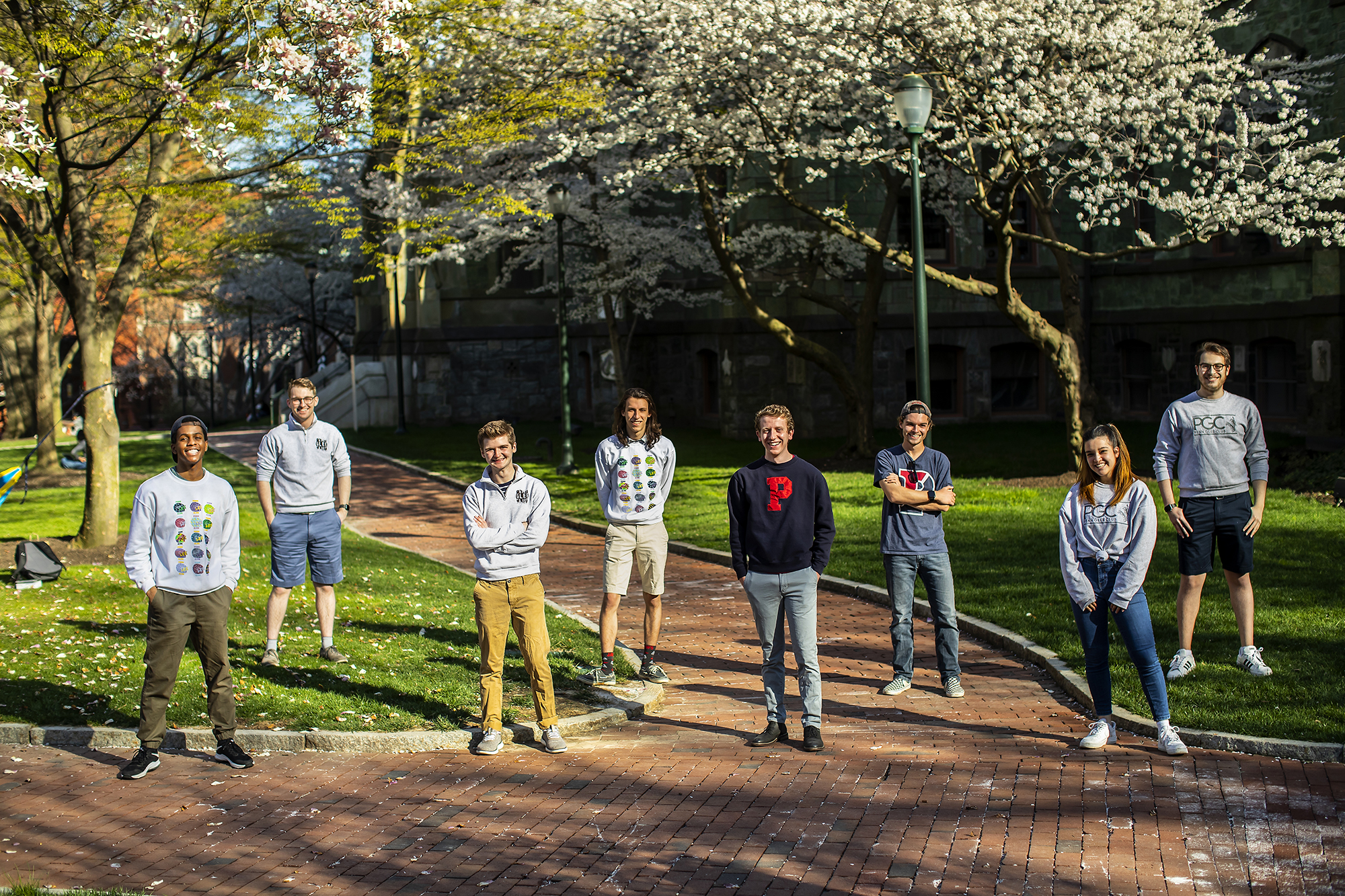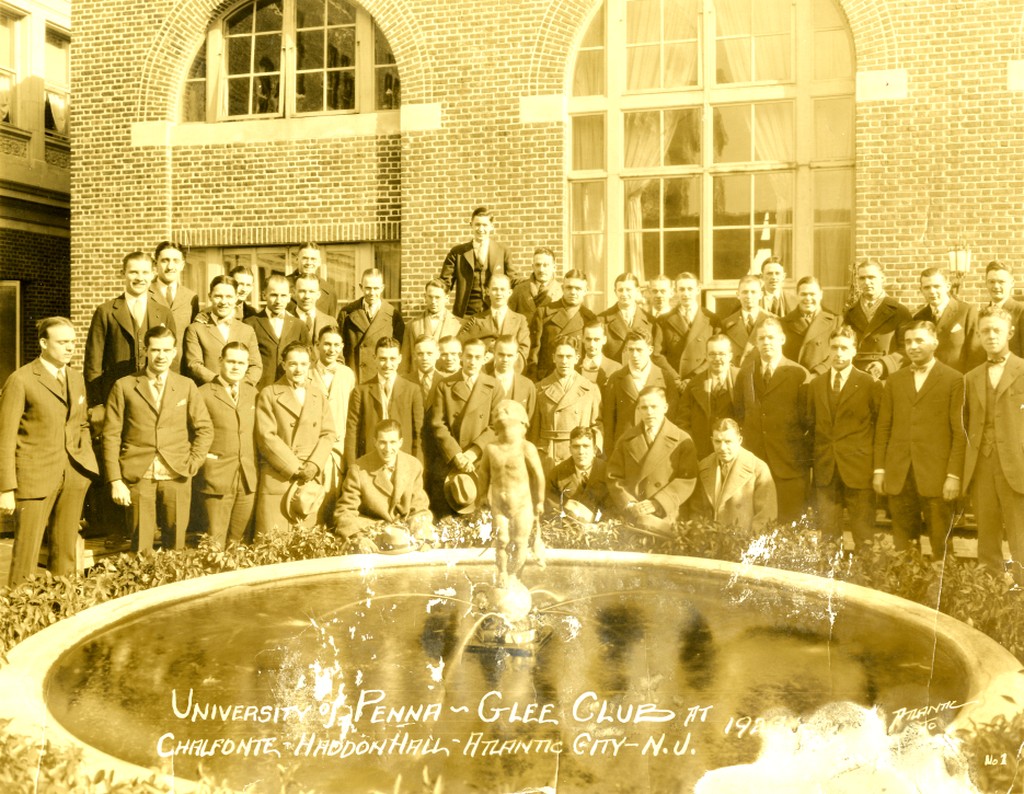Penn Glee Club becomes fully gender inclusive after 159 years of all-male singers
In a merger with the Penn Sirens, the chorus will add soprano and alto voices and be open to singers of all genders.
The University of Pennsylvania Glee Club and the Penn Sirens have decided to merge their choral groups, meaning that for the first time since its founding 159 years ago the Glee Club will include singers of all genders and will perform repertoire for soprano and alto voices, in addition to tenor and bass, and for all four voice parts.
In the final step in a yearslong process to make the Glee Club fully gender-inclusive, currently active members voted unanimously Friday afternoon to approve an amendment to the Club’s constitution and by-laws to allow singers of all genders and all voice parts.
“It’s a milestone day for sure; we are all really excited. It’s quite the accomplishment for all of us. It’s incredible that it’s done. It’s one for the history books,” said senior Jake Milner, Glee Club president, minutes after the vote.
“We talked a lot about the fact that we bill ourselves as the unofficial musical ambassadors of the University, and it’s tough to be an ambassador for the University if a significant portion of the student body is not eligible to be in the chorus,” says Milner, a finance and accounting major in the Wharton School from Chicago. “It feels like we accomplished something real, something that is good for the future of the Glee Club and its members, but also good for Sirens and its members, good for the performing arts, and good for Penn.”
The Sirens, founded in 2011 as a female vocal ensemble, supported the proposal that opens membership in the Glee Club’s Singers section to students of all genders.
“This merger will provide amazing performance opportunities to all Penn students and creates a more inclusive performing arts community,” says junior Marina Dauer, Sirens President.
“The plan that we have created allows current Sirens members to have representation on the Glee Club’s board and leadership positions while preserving Sirens as a soprano-alto subgroup to make sure we are able to continue our traditions,” says Dauer, a political science and environmental studies major in the College of Arts and Sciences from Dallas. “The core goal is to be the best performance group possible and put on meaningful shows, and that requires recruiting the people who are the most talented and committed and should include people of all genders.”
The Glee Club was founded on Nov. 5, 1862, during the Civil War era when the student body was all male, by eight undergraduate students in the classes of 1864 and 1865 as a “furthering of musical talents,” according to the University Archives. The Glee Club was the first performing arts group at the University, and by the close of the 19th century had become a regular fixture at ceremonies, events, and sporting games, performing traditional Penn songs such as “The Red and Blue,” “Hail! Pennsylvania,” and “Fight On, Pennsylvania.”
Those traditions continue to this day. Many events featuring the Glee Club are led by Penn’s president and leadership, from Convocation at the start of the school year to Commencement at the end. The Glee Club is one of the groups that touches every student’s life on campus.
“The Penn Glee Club and Penn Sirens—two student groups near and dear to my heart who often perform at our most coveted celebrations on campus—have decided to merge, singing a most beautiful song of their commitment to gender inclusivity,” says President Amy Gutmann. “This change is historic, as the all-male choir component of Penn Glee Club is almost 160 years old. Both groups have exhibited enormous care, with the thoughtful direction of advisers and leaders at Penn, during the process of making this transformative shift, and I am proud to see where they’ve landed.”
The Glee Club’s decision to become fully gender-inclusive is in line with student performing arts at Penn and other universities as fewer students choose to try out for single-gender groups.
“This is a discussion that we are seeing across student groups about equity and access and social justice,” says Laurie McCall, director of Penn’s Platt Student Performing Arts House and adviser to the nearly 50 undergraduate performing arts groups that make up the student Performing Arts Council. “Students across campus are embracing a movement where gender is not a requirement for membership, and gender is not considered to be binary.”
The Performing Arts Council approved the proposed change to the Glee Club’s mission statement on March 29, which opened the way for the Club to change its constitution and bylaws on Friday.
Over the weekend, the Club will vote in a new Board of Governors for the next academic year, which will include two appointed soprano-alto representatives. The new board will become active on June 1. Recruitment for the Glee Club in the fall semester will be open to the entire student body. Board elections a year from now, for 2022-23, will be open to all group members.
“We members of the Glee Club feel like there is no justification for excluding people on the basis of their gender anymore,” says Milner. “We don’t want to turn talented musicians away on the basis of their gender. That just seems like the wrong thing to do. We know the history we have gives us a certain amount of privilege within the community, and we want to use that in a positive way to open up more opportunities for everybody.”
The first performance as a merged chorus will be a recording for the Baccalaureate service on May 16, to be included in a virtual presentation as part of Penn’s 265th Commencement. The combined group will sing the Glee Club’s anthem, “Afterglow,” a new arrangement with all four voice parts.
“I have long been proud of both the Glee Club and the Penn Sirens for their gifted musicianship and artistry. I am now also proud of them for their forward-looking courage,” says Charles Howard, Penn’s vice president for social equity and community, who leads the Baccalaureate service in his role as University Chaplain.
“Over the years, so many of our student groups have changed their historic compositions with the changing times. These new chapters for old clubs can often be jarring for those of us who’ve been around for a long time,” says Howard, a 2000 Penn graduate. “Yet, the history of our beloved Penn ultimately shows that our students have more often than not been on the right side of big decisions like this. And our University is all the better for it.”
In addition to the full chorus, the Glee Club will include two separate chamber choirs: one that sings soprano and alto repertoire and the other repertoire for tenor and bass voices. Additionally, there will be two student-run a cappella subgroups within the Glee Club: the existing Penn Pipers with tenor and bass parts and the Penn Sirens with soprano and alto parts.




